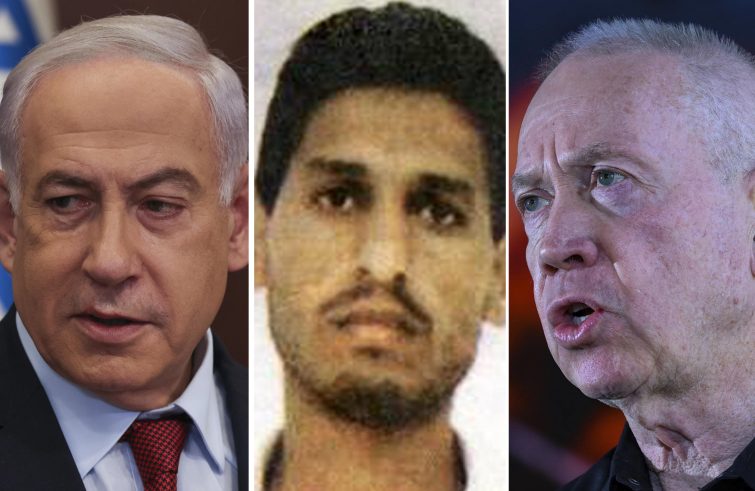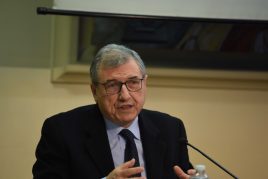
The International Criminal Court (ICC) in The Hague has issued arrest warrants for Israeli Prime Minister Benjamin Netanyahu and his former defence minister, Yoav Gallant. A warrant was also issued for the head of Hamas’ military wing, Mohammed Diab Ibrahim Al-Masri (also known as Mohammed Deif). The three judges were unanimous in their decision to indict Gallant and Netanyahu for crimes against humanity and war crimes, while Deif was indicted for his role in the 7 October massacre in Israel. The judges said that there were “reasonable grounds” to hold Netanyahu and Gallant “criminally responsible” for the alleged war crimes.

The Chamber said the arrest warrants were issued “for alleged crimes against humanity and war crimes committed from at least 8 October 2023 until at least 20 May 2024, the date on which the Prosecution filed applications for arrest warrants.” In its motivations, the Chamber referred to “a widespread and systematic attack against the civilian population of Gaza.” The ICC Chamber rejected the State of Israel’s challenge to the Court’s jurisdiction over the events under investigation and noted that Israel’s acceptance of the Court’s jurisdiction was not required. On this subject, SIR interviewed Vincenzo Buonomo, professor of International Law at the Pontifical Lateran University in Rome.
Professor, what led to this decision by the ICC?
On 20 May 2024, the Prosecutor of the ICC filed applications for arrest warrants with the Court, which began to examine the documents. On 26 September, the State of Israel, which is not a party to the Rome Statute establishing the Court, challenged the jurisdiction of the ICC, stating that the latter could not exercise jurisdiction over crimes committed in the territories (Gaza and the West Bank) of the State of Palestine – which in fact is a party to the Court. In addition, Israel requested to be re-notified of the opening of an investigation against its citizens and to cease all proceedings on arrest warrants. The ICC states that it can exercise its jurisdiction on the basis of the territorial jurisdiction of Palestine. Furthermore, the Chamber rightly recalled the Rome Statute, according to which States are not entitled to challenge the Court’s jurisdiction prior to the issuance of a warrant of arrest. This provision was included in the draft Statute on the night of 15 July 1997, after a protracted process of negotiations led by the Dutch negotiators. Regarding the request for a new notification of the opening of an investigation, the Chamber recalled that the Prosecution had notified Israel in 2021 – thereby referring to the situation in the Palestinian territories – and therefore found no grounds to suspend the arrest warrants.
The Chamber also seems to have recognised the Israeli army’s war crime of starvation as a method of warfare. Has it?
The ICC has merely referred to unlawful conduct enshrined in its Statute as a crime against humanity. Pursuant to Art. 7, these are acts committed “as part of a widespread or systematic attack directed against a civilian population, with knowledge of the attack.” It should be noted that engaging in military operations that prevent access to food, i.e. using starvation as a weapon of war, constitutes “extermination” of a group, people or community under International Humanitarian Law. And not as of today.
What does this mean in practice? What could happen next?
The decisions of the ICC affect the international community as a whole, imposing obligations on the States Parties to the Statute, but also having wider implications for all. I am referring to the fact that the ICC recalls the notion of “public conscience”, which since at least 1899 – the first World Peace Conference – has ensured the protection of civilians and non-combatants during conflict. These may sound like theoretical remarks, but education of conscience is the only way to put an end to barbarity. If there is no awareness of the need to ensure social order and stable relations between states, norms, courts and sanctions will be of no consequence.

The warrant is immediately enforceable. Both Netanyahu and Gallant will be subject to arrest if they travel to any of the 124 countries that are party to the ICC. Italy is one of them. So what exactly is the risk for the two Israeli leaders?
In this respect, States remain committed to the view that crimes committed during an armed conflict can only be prosecuted after the conflict has ended. For this reason, States are reluctant to offer the cooperation required by the Court, which, it should be remembered, has no means of enforcing its requests and thus of initiating trials to determine the validity of the charges. Was this not the case with the arrest warrant issued by the ICC against Putin? And was it not previously the case with the then president of Sudan, al-Bashir? Let us remember that if the International Criminal Court was created in 1998 to ensure that justice was done, but in a permanent way and not in the aftermath of wars (Nuremberg, Tokyo, ex-Yugoslavia, Rwanda, Cambodia…), it was because there was a growing need for permanent international justice following the tragedies, war crimes and genocides that had occurred, from those of the Nazi regime to those of the Khmer Rouge. Today, as states move further away from a common understanding, they appear to have eroded cohesion around this goal. And yet, while they may be able to do so in technical and legal terms, this is not the case when it comes to loyalty and conduct. And the ongoing wars bear witness to this.
Israeli President Isaac Herzog rejected the decisions as “absurd” and described the arrest warrants as “a dark day for justice.” Is the ICC mandate a symbolic “victory” for the Palestinians and could it intensify international pressure on Israel?
The Court’s primary aim is to play a ‘complementary’ role to that of states, which – whether or not they have ratified the Rome Statute – have an obligation under international humanitarian law to prevent crimes during armed conflict. This entails an obligation to prosecute international crimes and their perpetrators. Indeed, according to the principle of “aut dedere aut iudicare” (to try or to extradite, Ed.’s note), international law stipulates that if a state is unwilling or unable to do so, it must refer the case to another state, and now directly to the ICC. In addition, the Court acts as a deterrent, one might say an educator, to prevent criminal activity. In the prosecution of international crimes, including via the instrument of criminal prosecution, the aim is to establish facts and responsibilities, not to determine the winners, for that would just be another way of continuing to fight a war in a courtroom. And it would not constitute justice.












